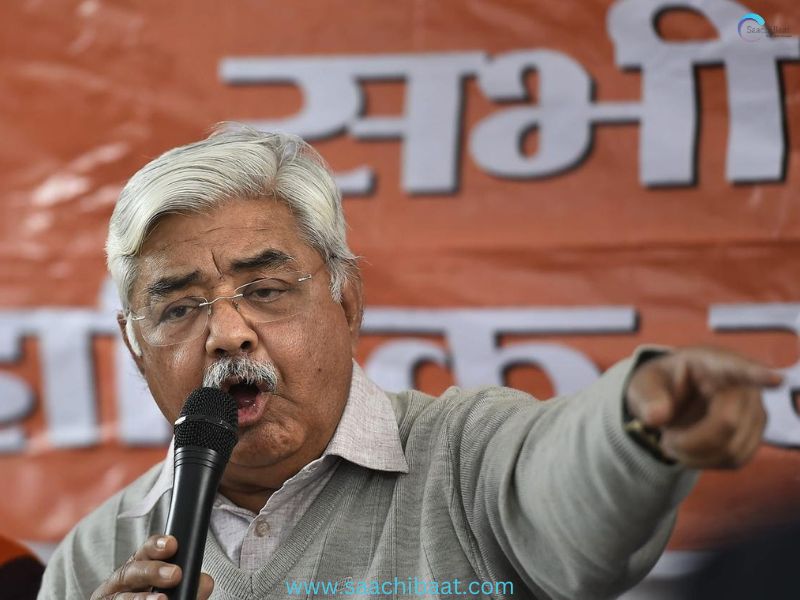Ayodhya: Vishwa Hindu Parishad (VHP) has intensified its long-standing plea for freeing Hindu places of worship from government control. VHP argues that religious institutions should be managed by the body of Hindus and religious organizations rather than government officials. The debate, which had become popular recently, has once again gained currency in the context of religious autonomy and the role of the state while dealing with temple affairs.
The VHP has constantly expressed its apprehensions regarding government interference in temple administration, which it has argued has led to the misappropriation of funds and resources diverted towards non-religious purposes. A characteristic feature of Hindu temples, unlike places of worship for all other religions, is state control, which the VHP believes undermines religious freedom for Hindus.
They advocate for temple income to be used only for religious activities, maintaining temples, and for the benefit of Hindu people. The VHP argues that the state control has converted temples into cash cows to sustain funds to support political actions and thus diminished their actual spiritual purpose.
Historical Background
This control dates back to the colonial era when the British regime passed laws controlling temple assets with the avowed aim of stopping corruption and mismanagement in the temples. Its adoption was followed by several state governments after India gained independence, as they cited that there was a need to ensure that there was adequate control in place so that temple wealth was well utilized.
However, this system has been criticized as discriminatory in the sense that it targets Hindu temples while other religious institutions such as mosques and churches have control over their own institutions in terms of interference from government units. The VHP and other Hindu groups call this an unfair discriminatory way of leaving Hindus to oversee religious institutions without having any form of authority over them.
Recent Developments
The demand for temple autonomy gained momentum, esp. in states like Tamil Nadu and Karnataka, where issues led public debates as well as legal challenges. VHP demanded the central government to pass legislation that would hand over temple management over to the religious boards and the communities.
They appeal to Hindu’s intent to contribute to their cause, which is that temple revenues were designed to be utilized for religious as well as welfare purposes and not for government sponsored ventures; these are by and large unrelated to the Hindus’ religion.
Restrictions on Temple Autonomy
Not everyone is optimistic about the VHP’s call for temple freedom. There are those who believe that state control over temples has ensured accountability, transparency, and proper maintenance of temple properties. Without it, some believe that some of the temples would go the way of financial mismanagement or be taken over by vested interests.
Others claim it can give control of the temples to religious bodies that tend to allow factionalism or un-uniformed methods of temple management and will eventually harm the interests of a devotee.
Conclusion
This renewed VHP campaign has brought into focus the much bigger issue of whether the state needs to play a larger role in institutions of worship. And despite all that has been asserted within the organization that temples need to function with no interference from the state, the issue is still alive and burning. Only time will tell if the government will finally give in to these demands or if it will continue on the path it is on.
××××××××××××××
Telegram Link :
For latest news, first Hand written articles & trending news join Saachibaat telegram group
https://t.me/joinchat/llGA9DGZF9xmMDc1


